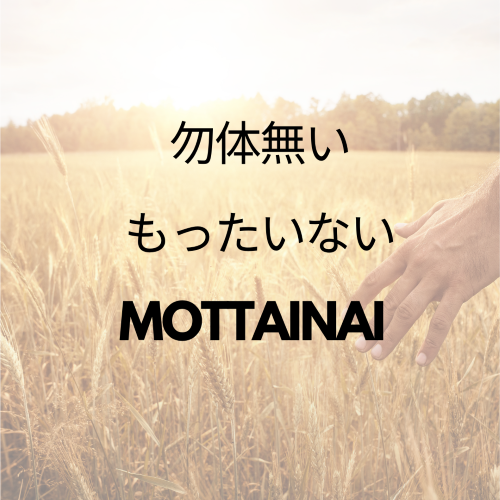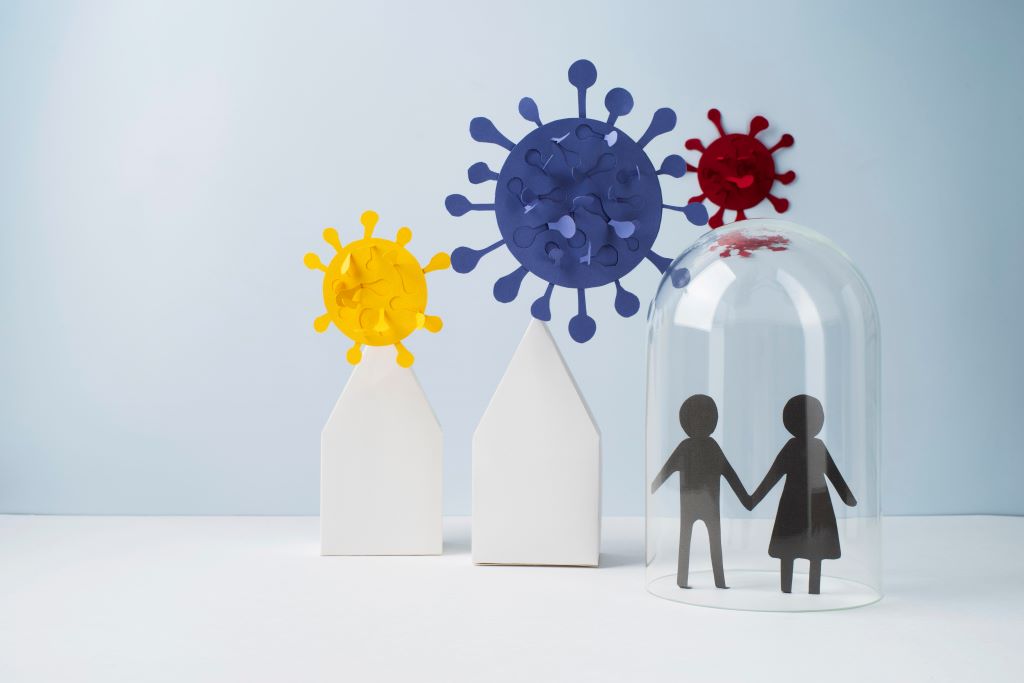Mottainai - Japanese Ancient Mantra in combating COVID-19
For more than a year, our country has been combating COVID-19, the number of infections is still high and worrying. National Recovery Plan remains in phase one, and everybody was asked to stay put at home unless for essential activities. This movement control still needs to be implemented to curb the virus. In addition, the new variants of Alpha, Beta, and Delta, which are more contagious, have urged the government to tighten the standard operating procedures (SOP).
The concept of mottainai, Japan’s eco-friendly philosophy, has attracted the global society that can be manifested in the current situation. The Japanese people teach this concept to their children to finish the meals without leaving any food on the plate. This concept that is normally associated with food waste can be implemented in a different situation as well.
This term has been used by the Peace Nobel Laurette 2004 winner, Wangari Maathai, a Kenyan environmentalist, as part of her advocacy to protect the environment and limited resources. She wore a t-shirt imprinted with the word mottainai during her speech at the United Nations. This ancient mantra of zero waste was introduced to ensure no resources will be wasted until the values have been cherished. More than that, this concept also describes the relationship between humans and nature, and the word cannot be translated appropriately in Malay or English.
Secretary-General of Ministry of Energy, Green Technology and Water Malaysia, Dato’ Seri Ir. Dr. Zaini Ujang, in his webinar and newly launched book, Japanese Ecosophy: A Traveller`s Note, has introduced the concept of mottainai as halalan tayyiban. “The word might be familiar to the Japanese but not Malaysian,” he said. “However, if we say halalan Tayyiban, people will easily assimilate and understand.”
How can the concept of mottainai be implemented in our present-day when some of us need to raise the ‘white flag’ to cry out for food and definitely will not waste any food? This concept is much more complex, including sustainable development, lifestyle, behaviour, values, and holistic. If we translate the concept into the COVID-19 combatting plan, we can summarise it as key performance index (KPI), budget spending, ratings, and other indices as a yard to measure the success of a nation to battle COVID-19.
Singapore, for instance, introduced a model for co-existing with COVID-19 from pandemic to endemic. The vaccination rate for Singapore has reached 40% of their population and started to shift to a new phase where COVID-19 becomes a less threatening disease, like the flu, without paralysing daily life. Our strategy should be revisited to apply the concept of mottainai in the current vaccination rate in our country, where only 6% of our population is fully vaccinated, and behaviours need to improve to achieve herd immunity by the end of December this year. If not, it will be violating the concept of mottainai where time, energy, resources, and national financial resources will be wasted.
The governments of the United States and some other countries started to ease the restrictions at a higher rate of infections to boost their economy. Again, we can apply the concept of mottainai to balance economic sustainability and human life. A comprehensive and clear plan needs to be introduced to answer ‘when’ and ‘how’ this pandemic will end. National Recovery Plan indicates a timeline with a phase of transition that seems to give some light to the society on what to expect and react. However, cooperation between all parties is crucial just to ensure there will be no more wasting of resources, time, and finances, and the year 2021 will end without any improvement. This is what we call mottainai, where money and time have been wasted without proper management.
Therefore, the concept of mottainai is very realistic and universal to be applied in this current situation and not just as wasting the food on the plate. This long-held Japanese mantra should drive us in battling this pandemic.
The writer is a Senior Lecturer at the Faculty of Chemical and Process Engineering Technology, Universiti Malaysia Pahang (UMP).
By : Ts. Dr Azizul Helmi Sofian
Email: azizulh@ump.edu.my
- 453 views











